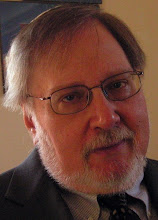For nearly 15 years, my workdays had followed a routine - drive an hour to work, hunt for the best parking space, boot up my computer, walk to the cafeteria for that medium coffee, black with no sugar, greet my fellow wage slaves and get ready to save the world for democracy and decency.
The job was anything but routine - an editor on the news and copy desks of The Journal News, Gannett's entry into the New York market, a metro newspaper that covered Westchester, Rockland and Putnam counties just north of New York City. I sometimes ran the paper and other times decided story placement, wrote headlines, helped design and compose full-page informational graphics on the wars, terrorist bombings and other world-shaking events that the paper covered.
Part of the work week was spent planning my week, month or year - vacations, holidays, an occasional trip out of the country. That, too, got to be routine and pretty short-term, planning a driving vacation or even an overseas journey two or three months ahead.
Then one day, a soggy package arrived at my door that changed all that.
It became obvious I would now have to plan the rest of my life and do it pretty damn soon.
I received a buyout offer.
It was couched as an early retirment plan, offering incentives and medical coverage, as well as get-out pay if I would agree to leave work within 45 days. That seems like a fairly long period of time, but trust me, it's not a long time at all to plan the rest of your life.
It was also a matter of be careful what you wish for, you may get it. And then what?
You see, I had been complaining about the drive to work, from New Haven to Harrison, N.Y., across the highway from White Plains. It took about a hour under the best circumstances and in New England in winter, often the circumstances aren’t the best. The work was also done at night, leaving work at 2 or 3 a.m. as often as not.
I told my wife that if I could get a deal where my medical coverage could be continued, where I had enough seniority to get a decent payout in lieu of pension (I started a few months too late for a real pension) and a decent out-the-door payoff, I would quit in a heartbeat.
When the offer came, I was as if the company had a seat at the table where I was expounding my wishes to my wife.
The fly in the ointment was that it was called a voluntary retirement offer. I could
refuse it without penalty, the offer said. I could continue working, taking home a
pretty darn good paycheck, a least for newspaper work. I could continue getting
vision and dental coverage, which wasn’t part of the buyout.
I had taken my wife’s advice and participated in the company’s 401(k) program, so money wasn’t really an issue. We could get along pretty well, especially since my wife would continue to work.
It was more of, “what do I do now.” I hadn’t expected to leave work so soon, so I had put off any realistic thinking. There was a plan to buy or lease an RV and drive around the country, seeing Civil War sites and other places I hadn’t experienced, like the Grand Canyon, for example. I had been in Israel’s grand canyon, but not Arizona’s. That’s the way my life worked. I had been to Venice, Italy, but not Venice California.
In the end, however, the rumors of layoffs at work were too strong and the anticipation of another winter of driving 100 miles a day in snow and ice won out. I took the offer, as did 24 of the 26 other people who were eligible.
Now the scene being played out in my head now is the one from the marvelous movie, “The Candidate,” where Robert Redford’s character, Bill McKay, who had just won a Senate election he took on as a dare, takes his campaign manager, played by the late Peter Boyle, into a closet.
Just over the din of the celebration, McKay could be heard asking the manager, “What do we do now?”
Tuesday, December 26, 2006
Subscribe to:
Post Comments (Atom)


No comments:
Post a Comment